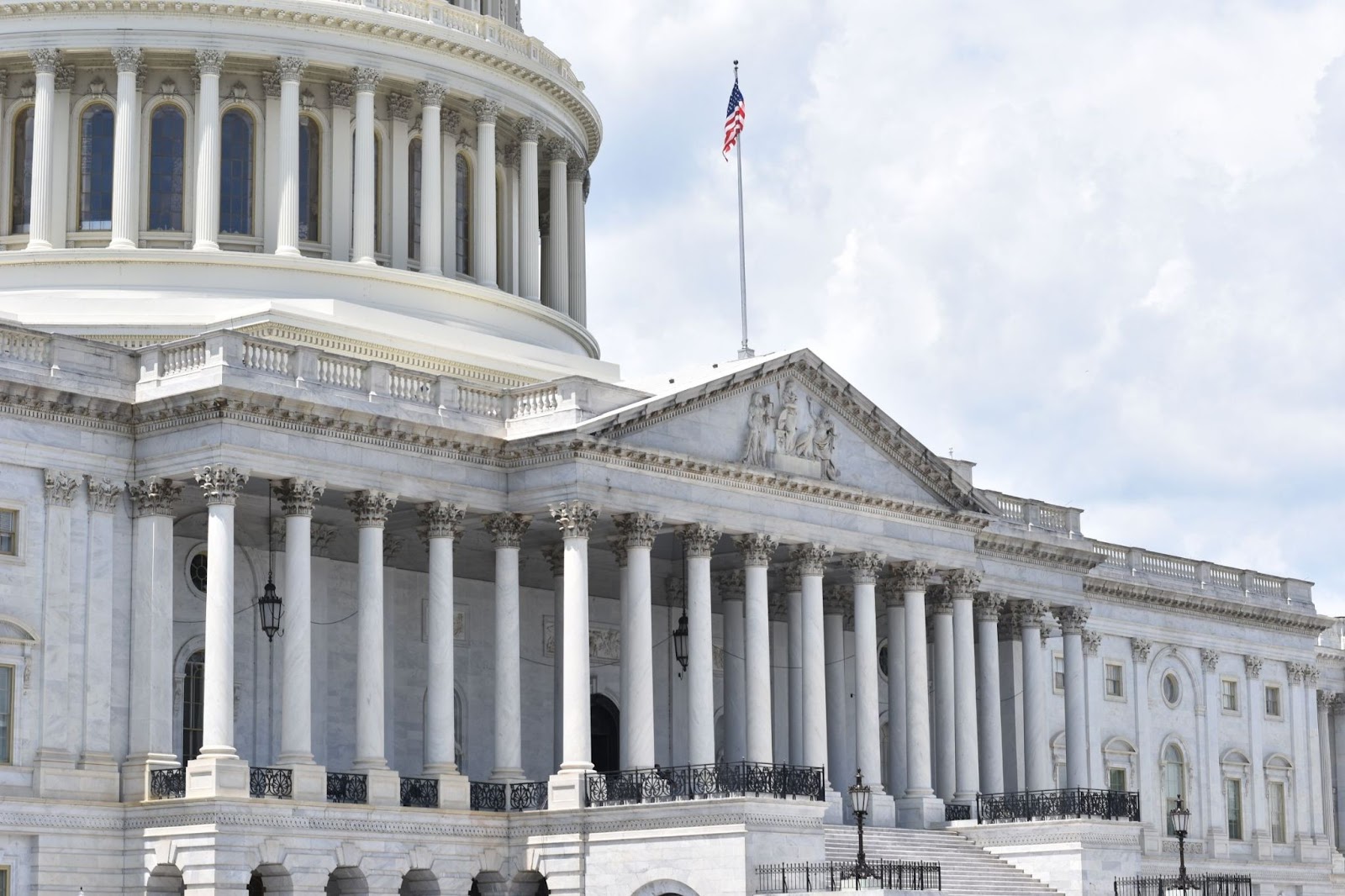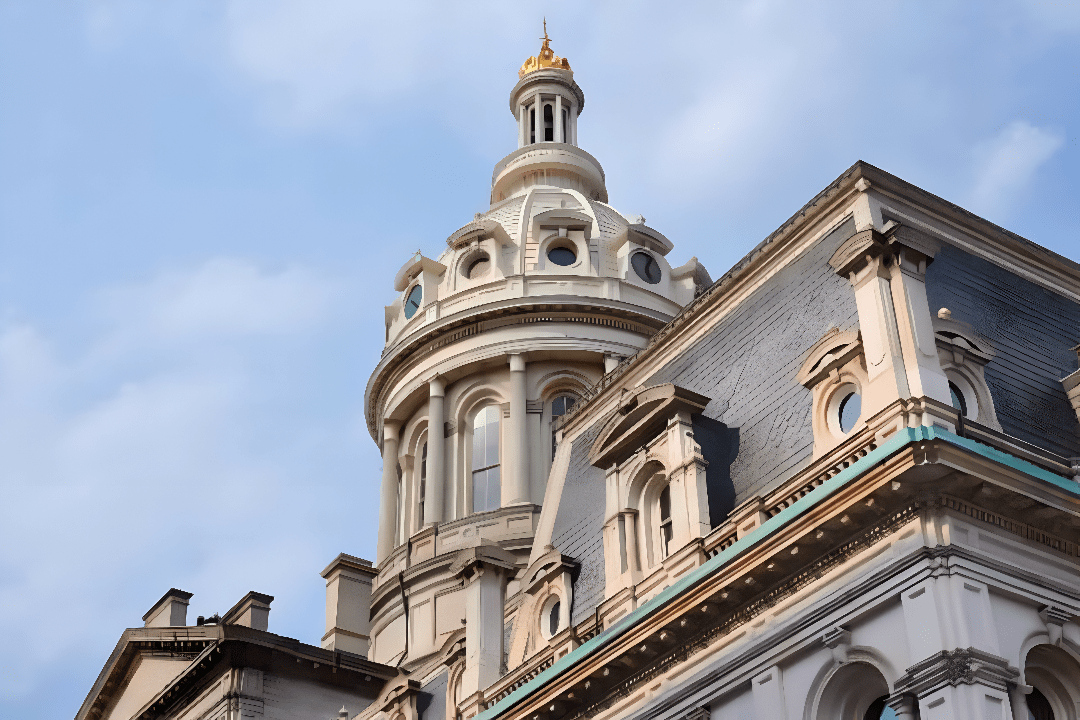A clear understanding of the Maryland grocery tax is vital for businesses involved in selling food and beverages, whether through supermarkets, online platforms, or restaurants. Understanding which items are taxable, which qualify for exemptions, and how to comply with state regulations can have a direct impact on pricing, accounting, and customer satisfaction.
This article outlines the main rules and requirements, providing clear guidance to ensure accurate tax collection and reporting, while highlighting the importance of sales tax for your business operations.
Does Maryland Tax Groceries?
Yes, but with important exceptions. Maryland grocery tax rules generally exempt most food sold by substantial grocery or market businesses for off-premises consumption from sales and use tax. However, items considered as prepared foods, such as meals ready to eat or items intended for immediate consumption, remain subject to tax. Snack foods sold in grocery stores for off-premises use or through vending machines are also exempt, but those sold with meals are taxable.
For businesses, knowing and applying these rules is crucial to maintaining proper US sales tax compliance. For accountants and tax advisors, staying informed helps provide precise guidance to clients, as clarifying these distinctions supports efficient financial management and compliance with the grocery tax in Maryland.
Overview of Sales Tax in Maryland
In Maryland, the state applies a standard 6% sales tax to the majority of retail transactions, covering physical goods and select services. Notably, Maryland does not have additional local sales taxes; therefore, the 6% rate applies mostly uniformly across all counties and cities, simplifying tax calculations for businesses operating statewide.
However, alcoholic beverages are subject to a separate tax rate. A 9% sales and use tax applies to the taxable price of these items, which replaces the standard 6% rate rather than being added on top of it.
For international businesses comparing VAT and sales tax, it’s important to note that the U.S. employs a sales tax system, where tax is applied at the point of sale, and the end consumer bears the tax burden. In contrast, VAT is levied at each stage of production and distribution, with businesses collecting tax on behalf of the government. This distinction can affect pricing strategies and compliance requirements for businesses entering the U.S. market.
Staying informed about the regulations around sales tax on groceries in Maryland ensures businesses can approach the tax framework effectively, avoiding potential compliance issues and optimizing their operations.
Grocery Tax Rules in Maryland
Complying with Maryland grocery tax requirements is essential for businesses selling food and beverages in the state. The regulations define specific tax treatments and exemptions for various types of items, from staple groceries to prepared foods.
Exceptions
In Maryland, most food sold by substantial grocery or market businesses for off-premises consumption is exempt from sales and use tax. However, prepared foods, such as hot meals, sandwiches, and items meant for immediate consumption, are taxable.
For instance, a gallon of milk or a fresh apple is exempt, while a candy bar or a hot prepared meal is subject to tax. Additionally, snack foods sold through vending machines are generally exempt, but those sold with meals are taxable.
SNAP/WIC Purchases
Food items purchased with federal Supplemental Nutrition Assistance Program (SNAP) or Women, Infants, and Children (WIC) benefits are exempt from Maryland sales tax. These exemptions apply to eligible food items, including soft drinks, candy, and other items that might otherwise be taxable. However, products like alcohol, tobacco, and freshly prepared hot foods are excluded from SNAP benefits and remain subject to sales tax.
Nexus Thresholds
Maryland requires businesses with physical or economic nexus in the state to obtain a sales tax permit to collect and remit sales tax:
- Physical Nexus: Established when a business has a physical presence in Maryland, such as:
- An office
- A warehouse
- A store or other business location
- Economic Nexus: Established when an out-of-state business reaches one of these benchmarks during the present or prior calendar year:
- Gross revenue of $100,000 or more from sales in Maryland
- 200 or more separate transactions with customers in Maryland
Understanding how tax on food in Maryland is applied requires a clear knowledge of these rules and thresholds. By staying informed, businesses can ensure compliance and avoid potential tax liabilities.
Tax on Food and Beverages in Maryland
In Maryland, the application of sales tax to food and beverage items varies based on their classification. Understanding these distinctions is crucial for businesses to ensure accurate tax collection and compliance.
Grocery Staples: Exempt from Sales Tax
Most unprepared food items sold by substantial grocery or market businesses for off-premises consumption are exempt from Maryland sales tax. This includes:
- Fruits and vegetables
- Meat, poultry, and seafood
- Bread, cereals, and grains
- Dairy products like milk and cheese
- Canned and frozen foods
These exemptions to the Maryland food tax help keep the cost of essential items low for consumers.
Prepared Foods: Subject to Sales Tax
Prepared foods are generally subject to taxation in Maryland. This category includes:
- Hot meals and sandwiches
- Foods packaged for immediate consumption
- Items sold for consumption on the premises or intended to be eaten there
For example, a hot dog from a deli is taxable, while a loaf of bread purchased for home use is not.
Beverages and Snacks: Taxable Exceptions
Certain beverages and snack items are subject to Maryland’s sales tax, even if sold in grocery stores:
- Soft drinks and sodas
- Candy and confectionery
- Bottled water (including both still and carbonated water)
- Sports drinks and energy drinks
- Ice and single-serving ice cream packages
These items are not considered “food” under Maryland law and are taxable regardless of where they are consumed.
Local Jurisdiction Variations in Maryland
Maryland maintains a uniform statewide sales tax rate of 6%, with an additional 3% rate on alcoholic beverages. Unlike some states, Maryland does not permit local jurisdictions to impose additional sales taxes, ensuring consistent tax rates across all counties and cities
However, certain localities have implemented specific taxes on food and beverages. Notably, Worcester County, home to Ocean City, imposes a 0.5% tax on all food and beverage sales, including those by grocery stores and restaurants. This tax is designed to support the financing of the Ocean City Convention Center.
Out-of-State Resale Certificates
Maryland is among the states that do not accept out-of-state resale certificates. Businesses must obtain a Maryland Sales and Use Tax license to make tax-exempt purchases for resale within the state. Out-of-state buyers wishing to purchase property for resale in Maryland are required to apply for a refund using Form ST-212.
Understanding these local nuances and resale certificate requirements is crucial for businesses to ensure compliance with Maryland grocery tax regulations and avoid potential tax liabilities.
Examples: How Grocery Tax Applies in Maryland
Knowing how the food and beverage tax in Maryland applies to various items is crucial for businesses to ensure accurate tax collection and compliance. Below are several scenarios illustrating the tax treatment of common grocery and food items in Maryland:
1. Bag of Apples
Tax Status: Exempt
Explanation: Whole fruits and vegetables sold by substantial grocery or market businesses for off-premises consumption are exempt from sales tax in Maryland.
2. Alcoholic Beverages
Tax Status: Taxable at 9%
Explanation: Alcoholic beverages are subject to a 9% sales and use tax rate.
3. Restaurant Meal
Tax Status: Taxable
Explanation: Prepared foods sold by restaurants, cafés, and food vendors are subject to Maryland sales tax, regardless of whether consumed on or off the premises.
4. Coffee Beans (Unroasted)
Tax Status: Exempt
Explanation: Unroasted coffee beans sold by grocery stores for off-premises consumption are exempt from sales tax in the state of Maryland.
5. Brewed Coffee (Hot)
Tax Status: Taxable
Explanation: Hot brewed coffee sold by food vendors is considered a prepared food and is subject to Maryland sales tax.
Understanding these distinctions is crucial for businesses to effectively navigate Maryland’s grocery tax regulations and ensure compliance with state laws.
Compliance Challenges for Businesses in Maryland
Handling the complexities of Maryland grocery tax regulations presents several challenges for businesses. Misunderstandings or oversights can lead to significant financial and operational consequences.
Below are some of the challenges most businesses typically face:
- Ambiguous Definitions of “Prepared Food”: Maryland’s tax code distinguishes between “grocery staples” and “prepared foods.” Items like hot meals, sandwiches, and foods sold for immediate consumption are taxable. However, the line between exempt and taxable items can be unclear, particularly for businesses that offer both grocery and prepared food items.
For instance, a sandwich sold for off-premises consumption is taxable, but the same sandwich sold for on-premises consumption may not be. Such nuances require careful attention to ensure compliance. - Managing Multi-Location Stores with Varying Rules: While Maryland maintains a uniform statewide sales tax rate, certain localities have implemented specific taxes, such as Worcester County’s 0.5% tax on food and beverages. Businesses operating in multiple jurisdictions must stay informed about local tax rates and regulations to avoid errors.
- Filing Accurate Reports with State Revenue Authorities: Accurate reporting is essential to avoid penalties. Common issues include:
- Incorrectly applying exemptions leads to underreporting of taxable sales.
- Failing to report use tax on out-of-state purchases.
- Failing to maintain proper documentation, such as sales tax exemption certificates.
- Risks: Penalties, Audits, and Reputational Harm: Non-compliance with Maryland grocery tax regulations can lead to:
- Penalties and interest for underreporting or late payments.
- Sales tax audits are triggered by discrepancies or patterns indicating non-compliance.
- Reputational damage leading to loss of customer trust and potential business opportunities.
To mitigate these risks, businesses should regularly review and update their tax practices to ensure they align with current regulations. Consulting with tax professionals can help navigate complex rules and ensure compliance with Maryland’s tax requirements.
How Commenda Helps with Maryland Grocery Tax Compliance
Managing Maryland’s grocery tax can be complex, but Commenda makes compliance simple and efficient. We automate tax calculations for grocery and food items, ensuring that exemptions and taxable items are applied correctly, so your business can operate smoothly and accurately.
Commenda’s sales tax platform keeps your business up to date by automatically reflecting changes in state and local tax laws, so you never have to worry about manual updates. It also simplifies filings for VAT, GST, and sales tax, consolidating reporting processes across multiple locations or jurisdictions.
By reducing the risk of errors and ensuring accurate reporting, Commenda saves businesses time and minimizes exposure to penalties, audits, or compliance issues.
Commenda ensures your Maryland grocery tax compliance is accurate and effortless. Book a free demo today!
FAQs on Grocery Tax in Maryland
Q. Are groceries taxed in Maryland?
Most staple groceries, such as bread, milk, and fresh produce, are exempt from Maryland sales tax when sold for home consumption. However, some categories remain taxable, making it crucial for businesses to classify items correctly at checkout.
Q. Is there sales tax on prepared food in Maryland?
Yes. Prepared foods, such as hot meals, deli sandwiches, and items ready to eat, are subject to Maryland’s 6% sales and use tax. This applies to restaurants as well as grocery stores that sell freshly prepared items.
Q. Are soft drinks and candy taxed?
Yes. Unlike exempt grocery staples, soft drinks, candy, and similar snacks are taxable in Maryland. For instance, soda or a candy bar will incur sales tax, while fresh fruit will not.
Q. Are groceries purchased with SNAP/WIC taxed?
No. Eligible groceries purchased with SNAP or WIC benefits are exempt from taxation in Maryland. This exemption even covers items like candy or soda when purchased under these programs, though alcohol, tobacco, and hot meals remain taxable.
Q. Do restaurants charge sales tax in Maryland?
Yes. Meals served by restaurants are taxed at a rate of 6%. Alcoholic beverages, however, are taxed at a separate 9% rate, which replaces the standard rate and applies only to the sale of alcohol.
Q. How often do grocery tax laws change?
Maryland grocery tax rules do not change often, but updates can occur through state legislation or regulatory adjustments. Businesses should stay informed to remain compliant.
Q. How can businesses automate compliance?
Automation tools and sales tax software enable retailers to apply the correct rates, track exemptions, and file accurate returns. This reduces manual effort and compliance risk.
Q. Does Commenda’s software handle multi-state grocery tax?
Yes. Commenda’s sales tax platform supports compliance in Maryland and across multiple states, with automatic updates to reflect changing rules.











